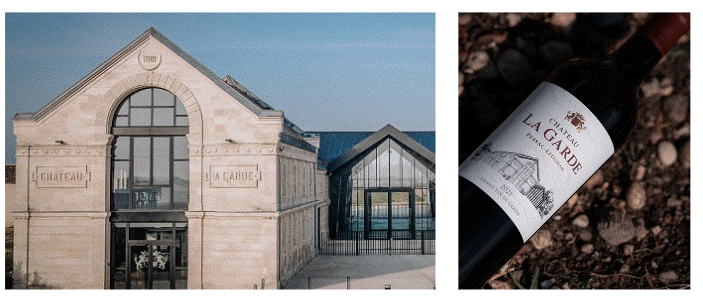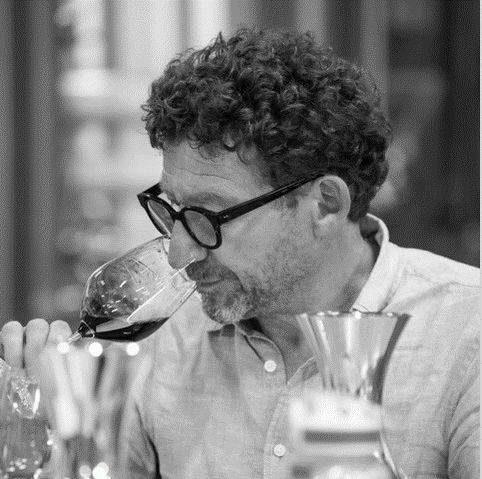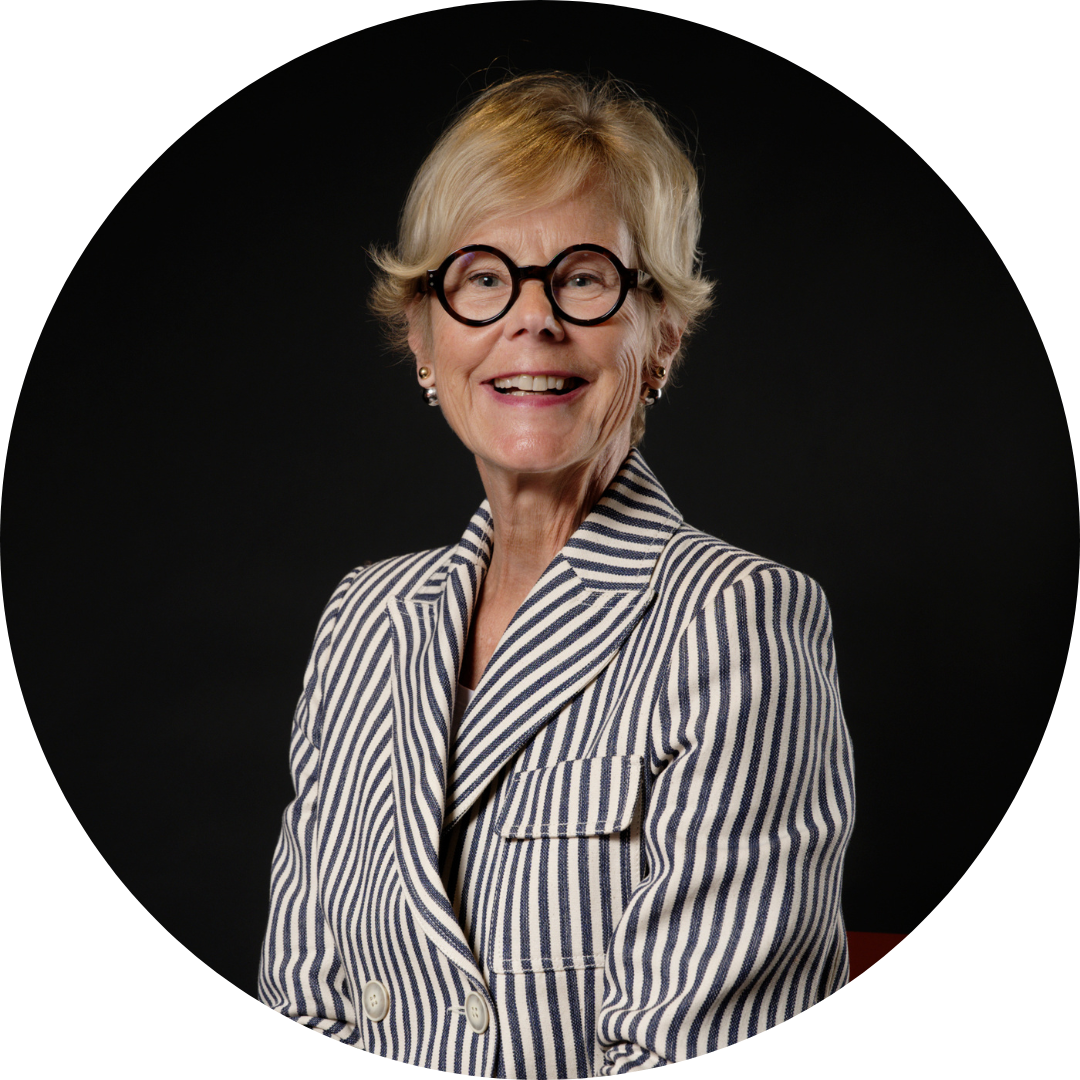Christophe Ollivier
Consultant oenologist
Former Denis Dubourdieu associate
Christophe Ollivier has a National Diploma in Oenology and also a Diploma of Studies and Research in Oenology from Denis Dubourdieu’s laboratory. His research on white wines quickly captured the interest of professionals.He began working as a consultant oenologist in the mid-1980s with Denis Dubourdieu, focusing initially on white wines, before extending his work to red wines.
Presentation
Gerda: What are the main challenges you face personally in your job?
Christophe Ollivier: There are many challenges. The first is to establish a shared vision of the estate’s wines with the owner or manager. No collaboration is possible without this prerequisite. The second is to objectively assess the production conditions (terroir, grape varieties, viticulture, installation and vinification) and to develop them to achieve the objective. Finally, the confidence of the entire production team is essential.
G: How would you describe the personality you try to give to the wines you consult? Is there a ‘Christophe Ollivier style’ ?
CO: No, it would bother me if anyone could attribute a recognisable taste to the wines I’m involved with. On the other hand, helping to create wines that are as rooted as possible in their place of production is an objective. For example, I remember the fun Denis Dubourdieu and I had in replacing Merlot with Sangiovese on some magnificent Chianti Classico terroirs. Or during my collaboration of more than 20 years with two major Greek estates, the percentage of Bordeaux grape varieties was largely reduced in favour of local varieties such as Malagousia, Agiorgitico, Vertzami and Limnio. The winemaking and ageing methods I recommend must allow the fullest and most delicate expression of the terroir. The method must be discreet in the bottle
The Future
G: You’ve been a consultant since 1980. What are the biggest changes in your profession?
CO: These days, estates are increasingly calling on outside consultants, and the range of services on offer has developed considerably. When Denis Dubourdieu and I set up the consultancy, we were the only ones to offer only consultancy (with no analysis or product sales) so that we could be totally independent in our recommendations. Nowadays, there are more of us in this position. Our advice was born of research, and it continues to be so thanks to the work of Valerie Lavigne and Axel Marchal. Over the last few years, I’ve noticed that demand from estates is more global. We are increasingly called upon to make medium- and long-term strategic choices. Finally, we can’t talk about the development of the consultancy business without mentioning its relationship with the world of wine criticism and its influence on wine scores. Some consultants have made this their speciality. There’s no denying that these relationships have had a positive impact on the taste of wine and contributed to the reputation of Bordeaux wines in general. However, it seems to me that this model is running out of steam.
G: How can winemakers protect themselves against climate change?
CO: This is not about denying climate evolution. However, when comparing the climatic conditions of the 80s, 90s, and largely the 2000s to today, the evolution of the climate, at least in Bordeaux, has generally been extremely favorable. The quality of the wines produced is a testament to this. Even during the 2022 vintage, marked by particularly high summer temperatures, we produced delicious Merlots despite our fears. Of course, we can be concerned about future developments, but if we put things into perspective, we see that Bordeaux grape varieties are already grown in more extreme climatic conditions around the world and can still produce great wines. The introduction of foreign grape varieties from warmer regions seems nonsensical to me. Bordeaux would lose the soul of its great wines.
Moreover, the climate is not just warming. We are also experiencing more frequent humid springs and, more generally, alternating periods of cool, wet weather with hot spells. This presents real challenges for managing the health of the vines and soil maintenance. The impact of these changing climatic situations is exacerbated by environmental pressures that have led to a significant reduction in the use of truly effective agricultural products. Under these conditions, maintaining quality production alongside rising production costs is inevitable. Proper valuation of the wines then becomes vital. Finally, in order to adapt to the changing climate in Bordeaux, we are far from having fully exploited our adaptation possibilities, both in terms of plant material (using later grafts and clones, increasing the percentage of Cabernet Sauvignon) and viticultural practices (reducing leaf area, limiting leaf removal, and soil maintenance methods).
G: What do you think of the trend and future of biodynamic wine?
CO: I have clients in organic and biodynamic farming who are very convinced. The goal of producing clean, original, and identifiable wines must remain unchanged. The question is whether it is easier to achieve this through this method. We have conducted many comparative trials, and the results are often difficult to interpret. Among the wines made biodynamically, there are truly remarkable successes, but also resounding failures, both in terms of quantity and quality. Finally, producing organically and biodynamically is more expensive. It seems clear today that consumers are only marginally willing to pay the price for it.
The Bordeaux Brand

G: What actions should we take in Bordeaux to increase our sales?
CO: This isn’t really my area of expertise, but I can offer a few thoughts. Today, neither taste nor price (for the vast majority of wines) are the major issues in Bordeaux. However, we may soon find that some of the production will struggle to maintain the quality that has been dearly acquired due to a lack of valuation. We don’t realize enough how much wine is losing ground with young consumers. Recent studies show that they still consume a bit of wine, but it no longer holds a special status and is completely replaceable. A genuine effort in simple and playful promotion is needed. Like other major production regions around the world, Bordeaux certainly lacks one or two high-volume brands. The taste of this wine must be widely agreeable. Lastly, the consumers of Bordeaux wines are aging, as are the critics and producers. We need to strive to attract young talent.
G: What are the strengths of Bordeaux?
CO: Undoubtedly, the wide selection. Bordeaux is a very large region that offers a beautiful range of wines at various price points.
G: What type of wine do you like?
CO: It obviously depends on the circumstances, but, perhaps due my profession, I cannot drink a wine that has a significant flaw. I also can’t stand “false great wines,” those that have all the attributes but nothing inside. They have all the attributes: the right oak, intensity, but neither originality nor personality. These wines are interchangeable, and they bore me. By deduction, I like all the others! I enjoy discoveries. I’m curious. Of course, I also like the best crus from good vintages, but that’s not my everyday experience! I have a particular fondness for simpler wines that you drink with friends without feeling obliged to comment on them. The simple pleasure of a good moment of relaxation
The Wine

G: Could you describe an exceptional wine?
CO: I am always fascinated by tasting old wines. Wines that are 30 or 40 years old can sometimes taste so young that they could be given 10 years less! They come from another world, yet they can still move us. I wish I could turn back time to know what they tasted like when they were young. They are obviously very rare and sometimes unexpected. Bordeaux is well represented in this category.
G: What is your memorable vintage in Bordeaux and why?
CO: I would say 2000, because it marks a sort of turning point. It is obviously a good vintage, but it is also the one where the impact of viticulture was truly highlighted. Unusual practices began to appear: leaf removal, green harvesting. Vineyard managers were increasingly invited to blending tastings, and cellar masters participated in grape tastings to determine the harvest date.
G: You’ve already tasted many vats from the 2024 vintage, could you share your first impressions with us?
CO: If we don’t yet know what it will be, we do know what it isn’t: it’s not about quantity, and it’s certainly not catastrophic. It could be prematurely and unfairly judged , especially given this year’s dull and rainy weather. However, the economic situation remains a concern. We should wait until the wines are complete before drawing conclusions. If the wines of recent vintages have been criticised for being too alcoholic or too concentrated, this one won’t face those issues. As long as the technical practices and economic strategies are properly calibrated, it could very well appeal to curious young consumers
Gerda BEZIADE has an incredible passion for wine, and possesses a perfect knowledge of Bordeaux acquired within prestigious wine merchants for 25 years. Gerda joins Roland Coiffe & Associés in order to bring you, through “Inside La PLACE” more information about the estate we sell.


